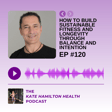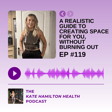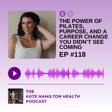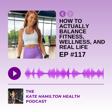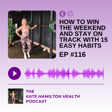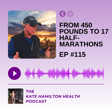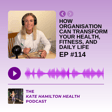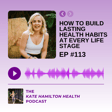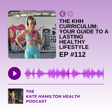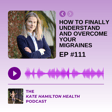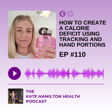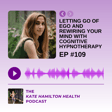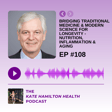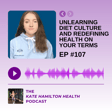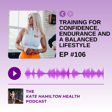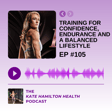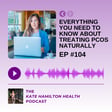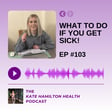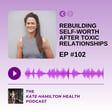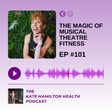
#100: Stephanie Miller: Root Cause Health for Better Gut Health and Hormone Balance
In this episode of the Kate Hamilton Health Podcast, I’m chatting with Stephanie Miller i better known as Stephanie Jane Health on Instagram or The Honest Health Queen. Stephanie is an online health coach and corporate wellness expert who’s passionate about root cause health coaching, with a special focus on gut health and hormonal balance.
We dive into Stephanie’s inspiring journey from corporate life to becoming a health coach after facing her own health struggles. She shares her insights on perimenopause, managing trigger foods, reducing stress, and how everything in the body is connected - yes, even your gut and brain! You’ll also learn about her tailored coaching approach and why it’s so important to treat each client as an individual.
Plus, we explore the vagus nerve, the role of minerals, and the small but powerful lifestyle changes that can make a big difference in how you feel. Whether you’re navigating perimenopause, working to improve your gut health, or just trying to feel like yourself again, this episode is packed with actionable tips and expert advice.
Episode Highlights:
[00:00] Introduction to the Podcast
[00:13] Meet Stephanie Miller: The Honest Health Queen
[02:31] Stephanie’s Personal Health Journey
[05:26] What Is Root Cause Health Coaching?
[07:30] How to Identify and Manage Trigger Foods
[10:17] Why Gut Health Is the Foundation of Wellness
[16:52] The Vagus Nerve and Gut-Brain Connection
[22:18] How Sleep and Stress Impact Your Health
[27:21] Balancing Life, Health, and Womanhood
[28:55] Managing Career and Family Responsibilities
[29:25] Making Time for What Matters
[30:15] Finding Purpose and Fulfilment in Your Work
[33:14] Hormone Health 101
[34:56] Nutrition Tips for Hormonal Balance
[36:25] How to Make Lifestyle Changes That Stick
[41:31] Navigating Perimenopause and Menopause with Grace
[45:41] Why Minerals Are Key to Your Health
[49:28] What Health and Self-Love Really Mean
[51:16] Final Thoughts and How to Connect with Stephanie
Links & Resources:
- Connect with Stephanie Miller on Instagram here
If you enjoyed this episode, please subscribe, leave a review, and share it with friends who might benefit. For more health and fitness tips, follow me on Instagram and TikTok @katehamiltonhealth.
Music b LiQWYD Free download: hypeddit.com/link/xxtopb [http://hypeddit.com/link/xxtopb] Promoted by FreeMusicPromo [https://www.youtube.com/channel/UCbycji-eySnM3WD8mbxPUSQ] / @freemusicpromo
